The Silicon Valley Bank collapse
Sudden failure of tech sector’s go-to bank sparks fears of wider contagion
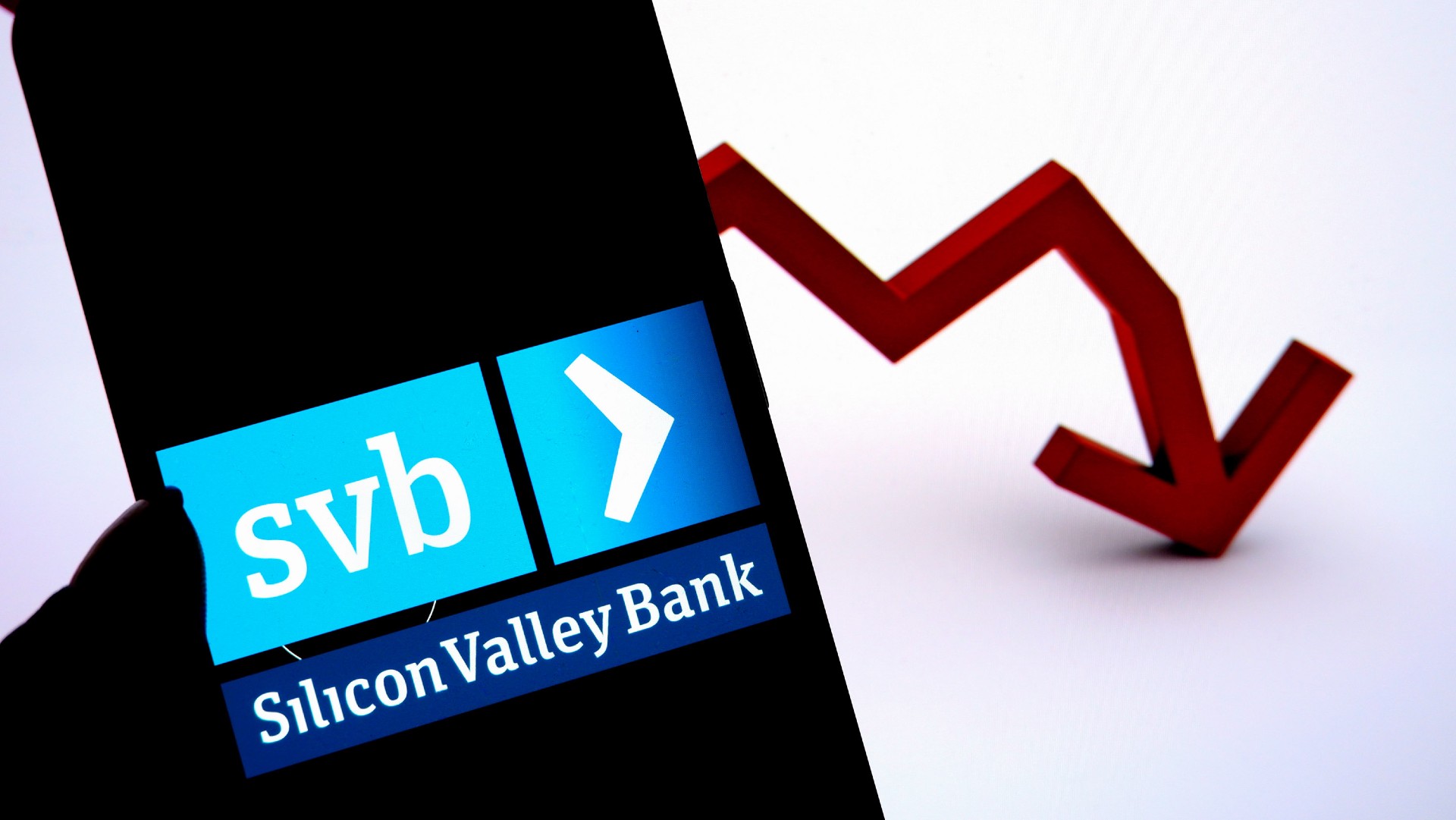
A free daily email with the biggest news stories of the day – and the best features from TheWeek.com
You are now subscribed
Your newsletter sign-up was successful
Financial markets across the world have plummeted in the wake of the Silicon Valley Bank collapse despite central banks’ attempts to quell fears of a repeat of the 2008 banking crisis.
Amid a global rout in stocks, European banks shed as much as 6% in this morning’s trading, putting them on track for their worst two-day drop since the Ukraine war began.
Fears of a potential global contagion appear to be receding thanks to swift action from financial authorities on both sides of the Atlantic over the weekend, but many predict the impact on the tech sector may be felt for years to come.
The Week
Escape your echo chamber. Get the facts behind the news, plus analysis from multiple perspectives.

Sign up for The Week's Free Newsletters
From our morning news briefing to a weekly Good News Newsletter, get the best of The Week delivered directly to your inbox.
From our morning news briefing to a weekly Good News Newsletter, get the best of The Week delivered directly to your inbox.
What is SVB and why did it collapse?
Founded in 1983 in California, Silicon Valley Bank (SVB) became the go-to bank for tech start-ups and claimed to have provided financing for almost half of US venture-backed technology and healthcare companies in 2021.
Yet despite being among the top 20 American commercial banks, with $209bn in total assets at the end of last year, it collapsed last week in a matter of hours.
In short, “SVB encountered a classic run on the bank”, said CNN Business, although “the longer version is a bit more complicated”, with several forces colliding to take it down.
Higher interest rates introduced over the past year by central banks around the world, including the US Federal Reserve, led to higher borrowing costs, which stalled the momentum of tech stocks. It also eroded the value of long-term bonds just as venture capital began drying up, forcing start-ups to draw down funds. It meant the bank “was sitting on a mountain of unrealized losses in bonds just as the pace of customer withdrawals was escalating”, said CNN.
A free daily email with the biggest news stories of the day – and the best features from TheWeek.com
Attempts to shore up its balance sheet by selling off securities at a loss last week triggered a panic among investors, who began pulling their money out, prompting SVB’s share price to plummet, with regulators called in on Friday.
Vox said the “sudden, swift collapse” was the second largest bank failure in US history – behind only Washington Mutual, which had $434bn in assets when it crashed in 2008 – and the biggest since the height of the financial crisis in that year.
What is the wider impact?
“The incident has sent shock waves across the tech sector,” said Vox.
Garry Tan, president and CEO of start-up accelerator Y Combinator, called SVB’s failure “an extinction level event for startups” that “will set startups and innovation back by ten years or more”, said Wired.
The immediate impact aside, “the collapse of the leading specialist in providing financial services to tech companies could make it harder for the next generation of startups to find what they need to build their business”, said the magazine.
“And after witnessing the herd-like, Twitter-fuelled rush to pull money out of SVB, other banks may be cautious toward tech out of fear of experiencing the same problems SVB faced.”
Beyond the sector, “SVB’s blowup is a big deal and a symptom of bigger forces in motion in tech, finance, and the economy”, Vox added.
Amid warnings from the likes of Axios that the US was “in danger of a catastrophic banking crisis”, financial regulators and the Biden administration moved quickly on Sunday to introduce emergency measures to reduce potential contagion that included ensuring SVB depositors would have access to all their money on Monday morning.
The Guardian reported that “banks will also now be allowed to borrow essentially unlimited amounts from the Federal Reserve for the next year”. This is to avert a situation where financial firms would have to “sell a class of investments that have been losing value because of the Fed’s own high interest rate policies”.
Yet despite efforts to shore up confidence, concerns over America’s regional banks do not appear to have fully abated with shares in several US lenders down by double-digits in pre-market trading.
What about the UK specifically?
There was widespread relief within the UK tech sector on Monday after it was announced that HSBC had bought the British arm of SVB, which had deposits of around £6.7bn and provided banking services for 40% of the UK’s biotech sector, for a “symbolic one pound”, Reuters reported.
The deal with one of the world’s biggest banks with trillions of dollars in assets “brought to an end frantic weekend talks between the government, regulators, and prospective buyers”, said the news agency.
Brokered by the Bank of England, it “involves no taxpayer money”, said the BBC, and means “customers and businesses who had been unable to withdraw their money will now be able to access it as normal”.
Chancellor Jeremy Hunt said: “We were faced with a situation where we could have seen some of our most important companies – our most strategic companies – wiped out, and that would have been extremely dangerous.”
This doomsday scenario has now been averted even if the short-term market turmoil continues.
-
 Why are election experts taking Trump’s midterm threats seriously?
Why are election experts taking Trump’s midterm threats seriously?IN THE SPOTLIGHT As the president muses about polling place deployments and a centralized electoral system aimed at one-party control, lawmakers are taking this administration at its word
-
 ‘Restaurateurs have become millionaires’
‘Restaurateurs have become millionaires’Instant Opinion Opinion, comment and editorials of the day
-
 Earth is rapidly approaching a ‘hothouse’ trajectory of warming
Earth is rapidly approaching a ‘hothouse’ trajectory of warmingThe explainer It may become impossible to fix
-
 Powell: The Fed’s last hope?
Powell: The Fed’s last hope?Feature Federal Reserve Chairman Jerome Powell fights back against President Trump's claims
-
 The end for central bank independence?
The end for central bank independence?The Explainer Trump’s war on the US Federal Reserve comes at a moment of global weakening in central bank authority
-
 Who will be the next Fed chair?
Who will be the next Fed chair?Today's Big Question Kevin Hassett appears to be Trump’s pick
-
 The 996 economy: Overtime, Silicon Valley–style
The 996 economy: Overtime, Silicon Valley–stylefeature After work, there’s...more work
-
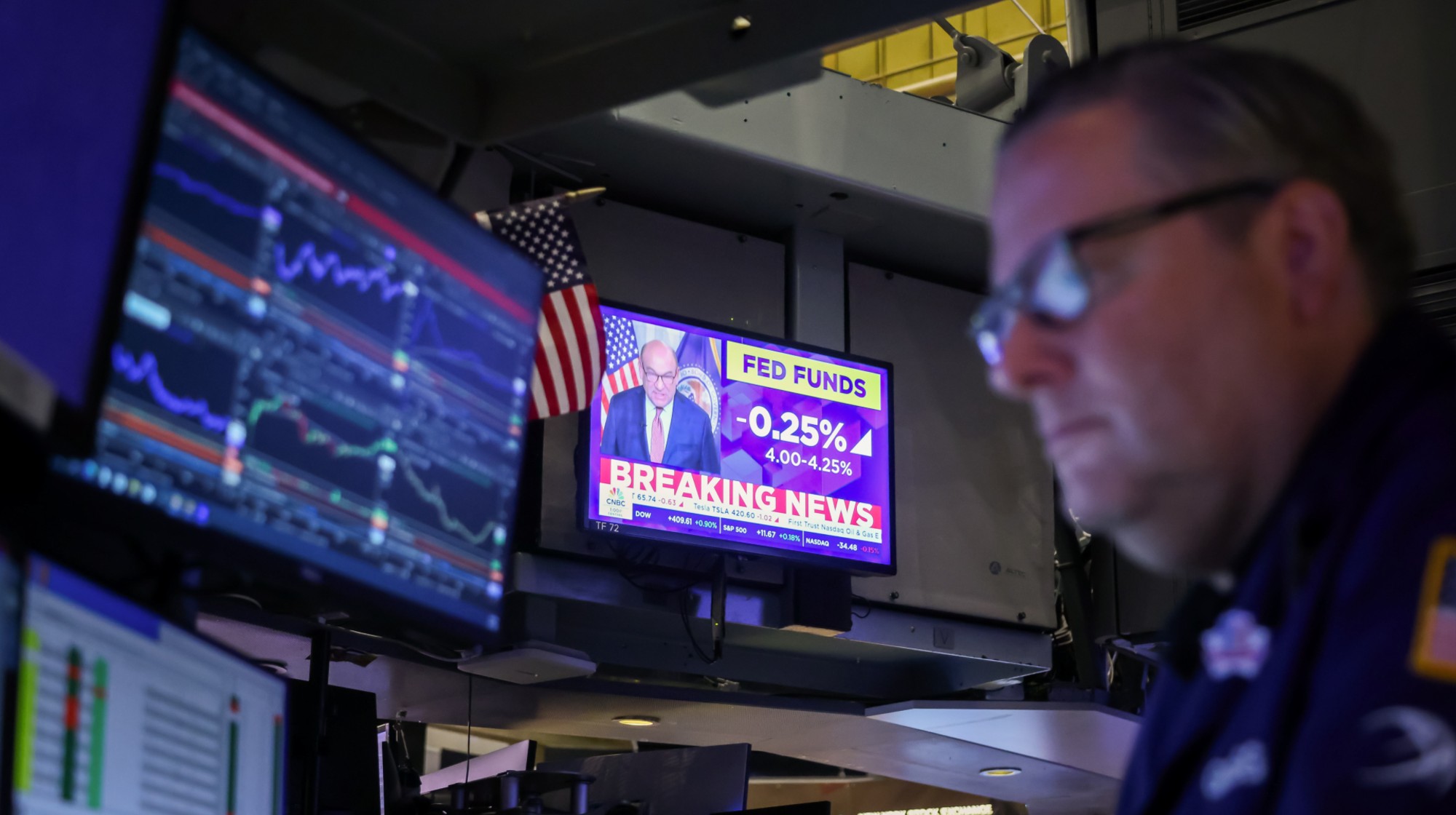 Fed cuts interest rates a quarter point
Fed cuts interest rates a quarter pointSpeed Read ‘The cut suggests a broader shift toward concern about cracks forming in the job market’
-
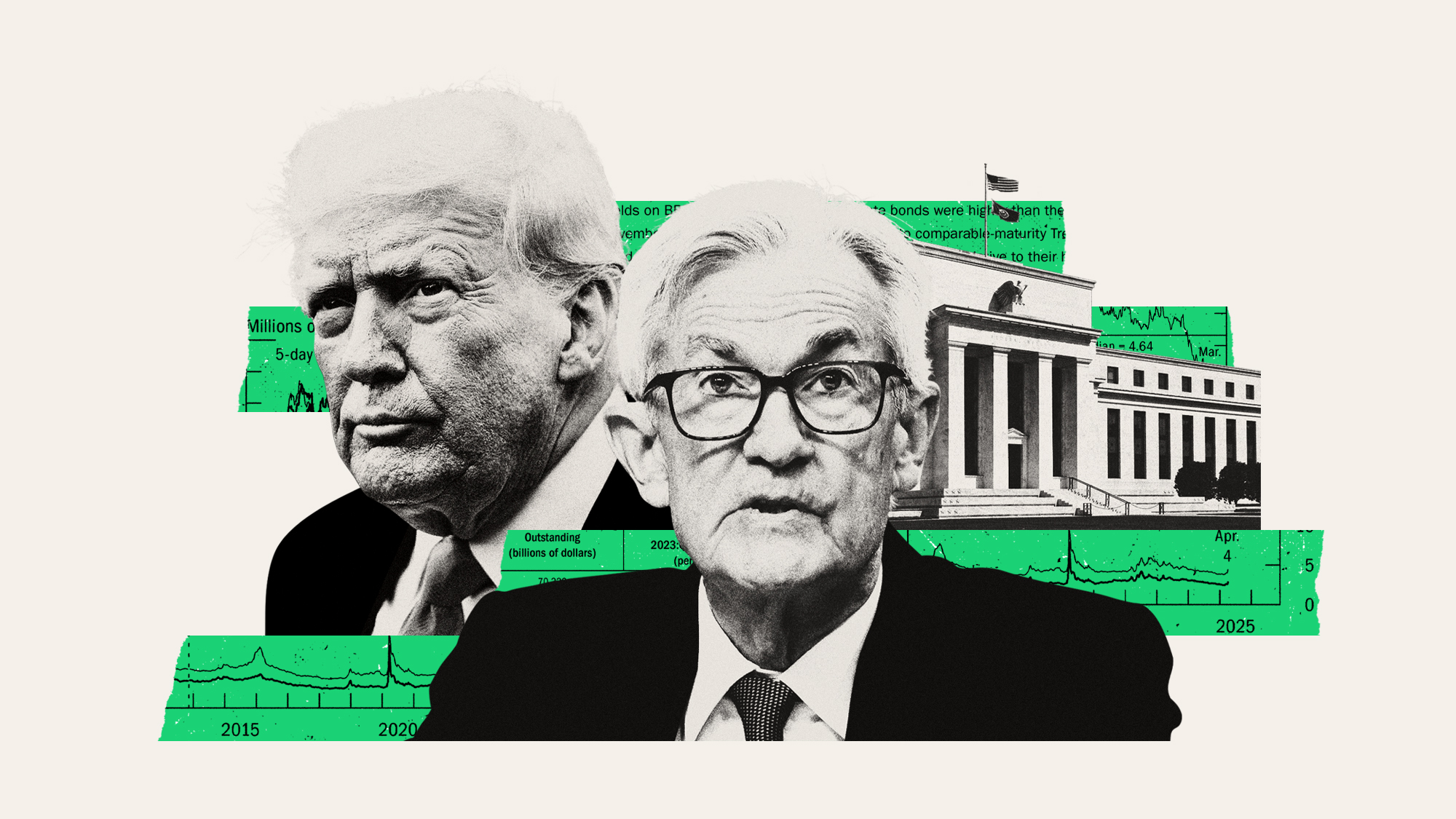 Trump's threats to fire Jerome Powell are unsettling the markets
Trump's threats to fire Jerome Powell are unsettling the marketsTalking Points Expect a 'period of volatility' if he follows through
-
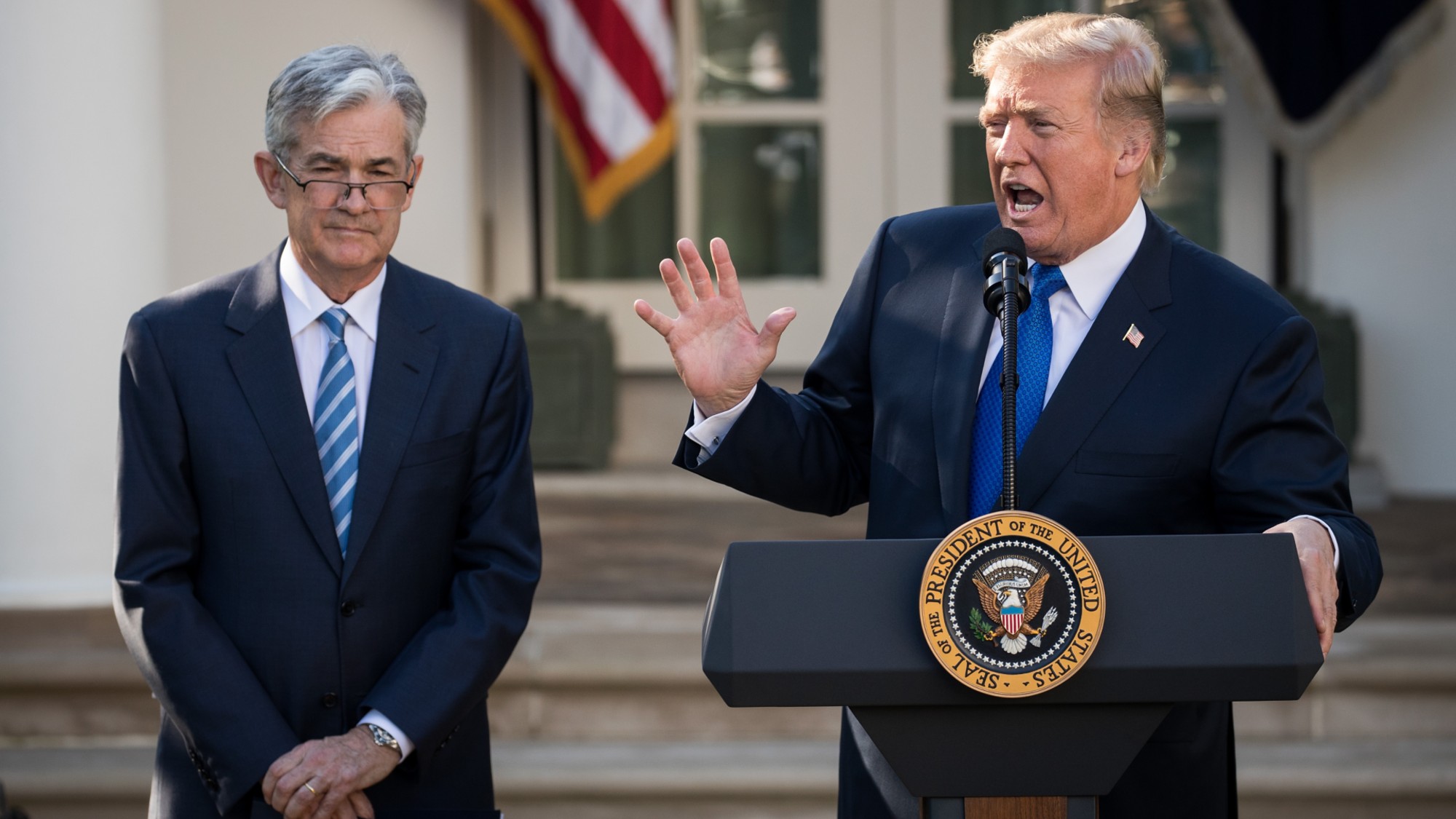 How will Wall Street react to the Trump-Powell showdown?
How will Wall Street react to the Trump-Powell showdown?Today's Big Question 'Market turmoil' seems likely
-
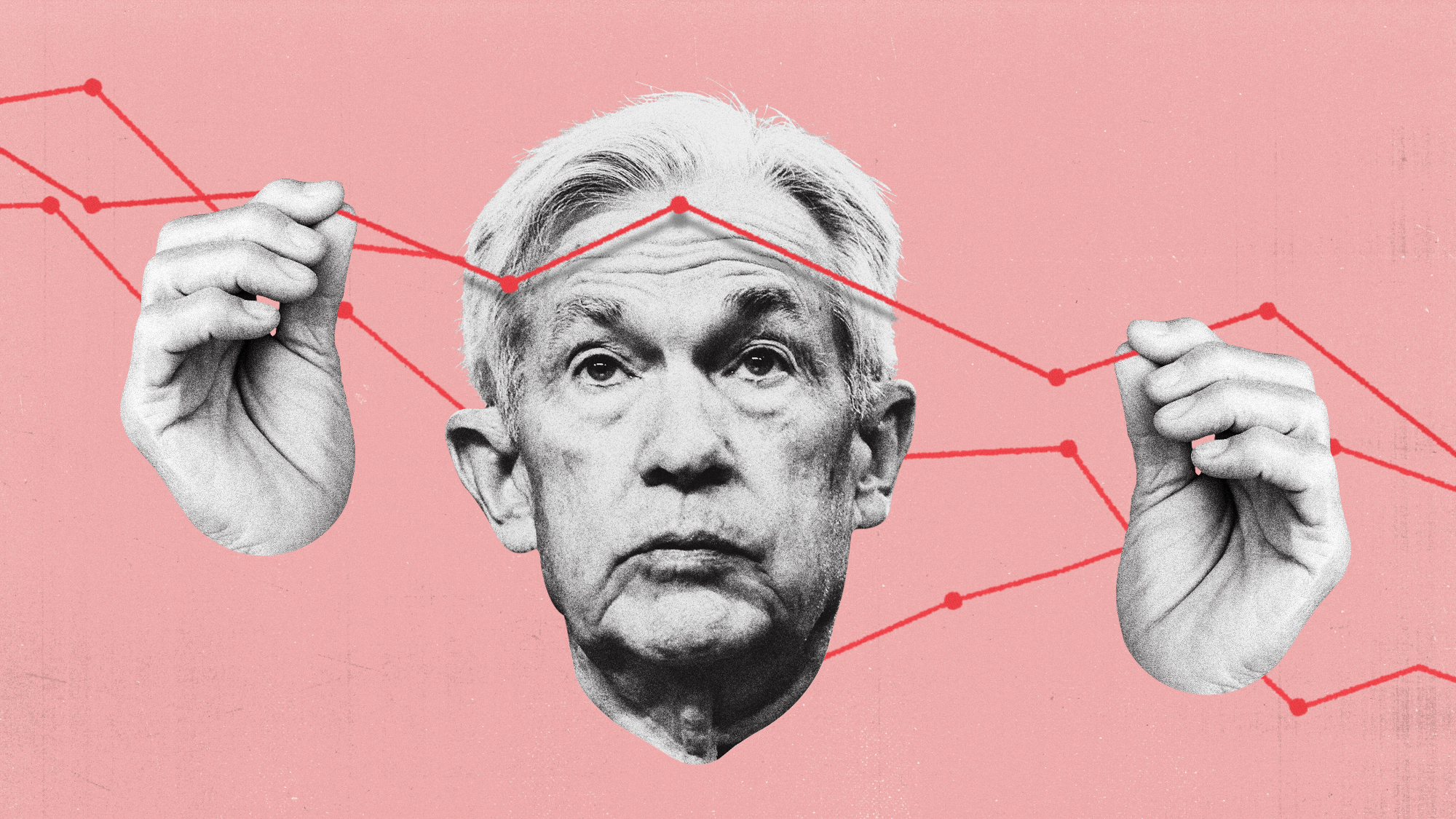 How will the Fed manage Trump's economy?
How will the Fed manage Trump's economy?Today's Big Question Jerome Powell is 'in a bind'